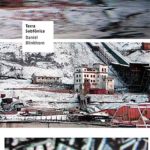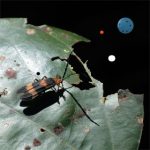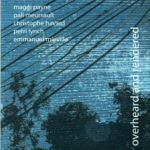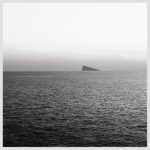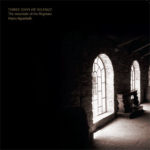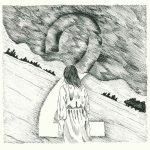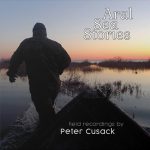Unter Grund
14,00 € VAT included
In stock
“The Ruhr Area lives from and with water. It needs drinking water, water for industrial facilities and water for transportation. Water veins pulse invisibly with groundwater, connecting rivers through subsurface tunnels that also force their way into disused mines. This mine water has to be drained continuously or pumped out from underground (one speaks of unending tasks) to prevent the collapse of old shafts, subsidence damage, and the contamination of drinking water. Without constant pumping of the groundwater the Ruhr Area would transform into a vast marshy landscape.
Fabian Lasarzik
The discomfort from the underground
Christina Kubisch’s site-specific sound installations are based on retrieving parallel worlds. She often responds to structures and atmospheres of places and their unheralded vibrancy which she turns into concrete perception and imagination by the recipient. For the 26-channel installation “under ground” carried out on Zeche Zollverein Christina Kubisch examined above ground and subterranean streams which are little noticed, but play a decisive role: water which has to be developed from abandoned and not backfilled shafts and mounted into a complex canal and river system.
It is about the control and domination of mine water, which is nothing but ascending groundwater intruding former coal bearing seems and seeping away in deepness. It has to be pumped and conveyed permanently. Without this elaborate dewatering the tunnel system would be flooded which would set the surface in motion. By now the region in the Ruhr area sagged more than 20 meters within the last 150 years. Also the water would mix with our normal groundwater and soil it chemically. It would ascend and transform the Ruhr area into a swampy seascape with contaminated water. On Zollverein there are already six centrifugal pumps in 1000 meters depth, two of them working constantly. About 8 millions cubic meters of water are developed in average per year. Talking about perpetual burdens and costs means those strenuous efforts.
Those tremendous consequences and measures correspond to the enormous and massive historical interventions caused by coal mining that are widely unknown to the public. The artistic field studies by Christina Kubisch pick out this parallel world as central theme. With high sensitivity in her tonal production she feeds the dark dimension of our imagination, which associates the invisible “under the ground” with the uncanny, the uncontrollable primordial. The subject deals with the conscious and the unconscious in a metaphorical way: the lucent, literally bright surface reality in opposite to the dark, uncanny and hidden reality underground.
Christina Kubisch mediates those aspects within a spatial composition by using above and underground f recordings. What we hear is reality, which can be sensually experienced within a composition subtly connecting documentary material with our imagination. If we engage in the imagination stimulated by this work, we feel the monstrous things which happened underneath our feet, humans competing with the bowels of earth and the forces of nature. “Under ground” — and we are talking about approximately 1.400 meters depth — associates the unconscious, the archaic, the long forgotten. Eventually we are standing on what deposited during millions of years and we only know little about, except it is tremendous and began before the emergence of mankind.
Our primal fear at this point is those primary things (basically nature itself) could turn against us and take revenge. Christina Kubisch’s work plays with those associations without pathos. When the bassy vast main water pumps raise their sound it seems we hear a giant organism underneath us breathing in and out. The sounds indicate magnitude, significance and menace. We become aware of something we normally do not notice. After all Kubisch uses military equipment like special hydrophones to make this parallel worlds tangible, and she probably does it with a certain subversive delight. It is not only about picturesque sounds and enthralling noises, but also about alternative ways of perceiving and accessing correlations. This is her deep conceptual approach. Kubisch’s work is about autonomously provided ways of experience and unofficial versions of reality. Therein lies also an ironic jab at our faith in technical progress, which on the one hand opens up the world to us, but with its focus on certain lines of development strikes us with blindness at the same time.”
Tracklist:
1. Unter Grund 23:47
2. Vision 8:28



